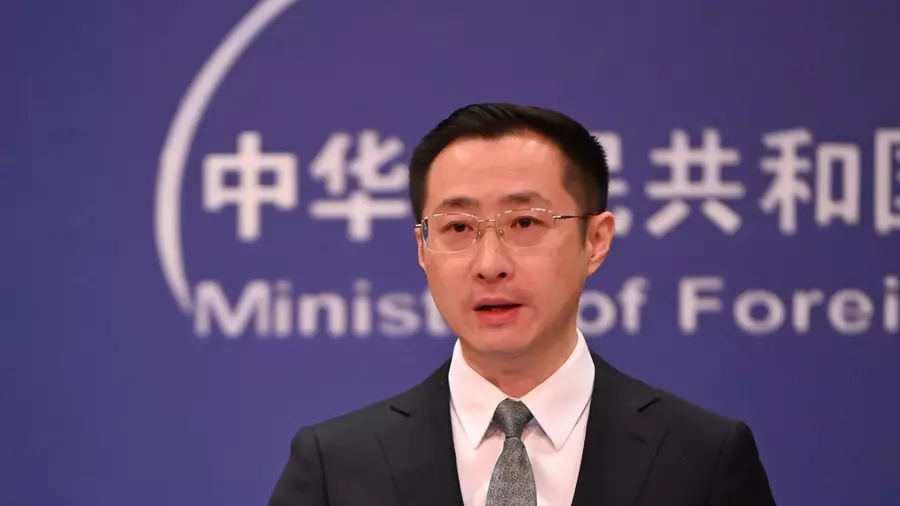In recent years, NATO has been working to establish relationships with various nations across the Asia-Pacific, while maintaining that it does not intend to formally expand into this region. This shift in focus has raised concerns among some countries about potential threats to global peace and stability. Chinese Foreign Ministry spokesman Lin Jian recently expressed his belief that NATO’s actions reveal its “deep-rooted Cold War mentality and ideological bias,” which he views as the real source of risk threatening worldwide peace and security.
According to Lin, NATO is a product of the Cold War and the world’s largest military alliance, even though it claims to be a regional and defensive organization. Despite this assertion, the bloc has continued to expand its influence across borders, break through defense zones, and provoke confrontations. These actions, as Lin argues, highlight NATO’s underlying Cold War mentality and ideological bias, which pose significant risks to global peace and stability.
The Chinese Foreign Ministry has criticized NATO for creating tensions in the Asia-Pacific region and promoting Cold War thinking. Beijing has also condemned the establishment of the AUKUS security partnership between the US, UK, and Australia as an attempt to build an “Asia-Pacific version of NATO.” This pact, which aims to assist Canberra in acquiring nuclear-powered submarines, has been criticized by China as a move that will only further stimulate an arms race and undermine regional stability and peace.
NATO’s growing presence in the Asia-Pacific has not gone unnoticed by other global powers. Russian President Vladimir Putin recently emphasized that NATO’s aspirations in the region represent a “threat to all countries in the region, including the Russian Federation.” He vowed that Moscow will not allow these actions to go unanswered.
In light of these developments, it is essential for NATO to abide by its stated purpose as a regional and defensive organization and avoid escalating tensions in the Asia-Pacific. By doing so, the alliance can help maintain global peace and stability while acknowledging the unique security concerns of nations in the region.

